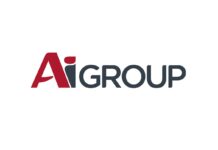
The Federal Government’s first annual budget for 2023-24 has the industry talking, with Ai Group’s Innes Willox remarking the budget “unfortunately lacks the urgency and imagination required to power the Australian economy through a period of anaemic growth.”
In a news release, the Australian Industry Group chief executive said the budget provides little in the way of structural changes that are necessary to increase productivity, investment, innovation, job creation, and real income growth that is sustainable.
Willox emphasised the government used its one-time surplus, which was fueled by high commodity prices, a tight labour market, and fiscal drag, to pay down debt and reduce future interest payments.
Instead of productivity increases to boost the economy out of its long-term productivity slump, the Ai Group official said the government has prioritised household-based subsidies and transfers more.
“While they have been designed to lessen the direct inflationary impact, these Band-Aids and sugar hits also fail to address the underlying causes of the problems they are trying to solve around housing shortages and underlying energy costs,” Willox stated.
On a positive note, Willox said the main encouraging news relates to the plans to strengthen Australia’s skill base, including the potential for an additional $3.7 billion in financing for vocational education and training if a National Skills Agreement can be reached.
“This will be essential to building a TAFE system fit for purpose to meet the demand for additional TAFE places the Government hopes to create,” he said.
He pointed out that it is encouraging that there is a focus on enhancing the fundamental language, literacy, and numeracy abilities that Australian business reports are preventing them from moving forward.
“The focus on skilled migration remaining the core of our national migration program of 190,000 migration places is also welcome as the industry seeks to fill growing skills gaps across our economy,” Willox noted.
Meanwhile, the Ai Group official described the new Industry Growth Program as a “cut-down, half-funded, government-run version of the existing Entrepreneurs’ Program,” which has provided support for smaller businesses to strategically plan for growth and expansion.
Willox said there are numerous initiatives in the budget that are not adequately explained or detailed, including the $2 billion the government has set aside for “buying hydrogen contracts” in the future and the $75 million it has set aside for a National Artificial Intelligence Centre and related activities.
Overall, he said that the underlying issues that Australian businesses and the economy face are not generally addressed by the budget.
“While it reduces debt, the focus on short-term household relief will not provide the productivity growth we need now and the jobs we need for the future,” Willox concluded.




















